Weaponizing Human Rights in the UN Human Rights Council: The Dilemma for Sri Lanka
Prof. Srilal M. Perera
Beginning 28th February, the UN Human Rights Council (HRC) will consider a written Report on Human Rights in Sri Lanka by the High Commissioner for Human Rights in Geneva, at its 49th Session. This prospective written Report was required by the HRC through a Resolution passed by a simple majority at its 46th Session in March 2021 (46/1). Concerns about Human Rights in Sri Lanka began in 2012 at the HRC’s 19th Session when a core group of countries passed a Resolution (A/HRC/RES/19/2) on Sri Lanka by an absolute majority (24 of the 47 HRC members). Since then six other resolutions have been passed in the HRC on Human Rights in Sri Lanka, at various sessions of the HRC, including uniquely Resolution 30, which was co-sponsored by Sri Lanka and was adopted by the HRC without a vote. The requirements under these Resolutions varied, with the Office of the High Commissioner for Human Rights (OHCHR) obligated to produce at regular intervals oral and written reports on Human Rights in Sri Lanka;and carry out investigations of and accountability for grievous human rights violations.
Given the escalating requirements and the trajectories of successive HRC Resolutions on Sri Lanka, theanticipated written report on human rights in Sri Lanka by the OHCHR does nor bode well for the nation. As will be shown below, the increasing global political dynamics of hijacking the HRC to mature political purposes, to the extent of disregarding even the fundamental principles of the mandates of the HRC and OHCHR, will relegate Sri Lanka to furtherperils of isolation both politically and economically. Increasingly, human rights are being weaponized to push States into conformity with political agendas and moral platitudes, rather than expressions of serious concerns and assistance to member states at their requests to overcome serious human rights issues. Quite the contrary, the succeeding HRC Resolutions and OHCHR Reports have become increasingly intrusive, adversarial, accusatory and assumed roles that, at least in the case of Sri Lanka, are contrary to their original mandates.
The Mandates of the HRC and the OHCHR
In terms of the contextual back-ground for the Resolutions on Sri Lanka (or for that matter any HRC Resolution) it is vital to understand the mandates given to the HRC and the OHCHR. The HRC is successor to the original Commission on Human Rights.Its mandate is derived from the UN General Assembly Resolution A/RES/60/251 of 3 April 2006 (60/251). There are key prefatory clauses (PCs) that are relevant. One such PC is the recognition that respect for human rights is the sole responsibility of each State (PC 5). PC 9 is equally important in that it recognizes in the HRC the need for “ensuring universality, objectivity and non-selectivity in the consideration of human rights issues, and the elimination of double standards and politicization”. Similarly, PC 10 recognizes that “promotion and protection of human rights should be based on the principles of cooperation and genuine dialogue and aimed at strengthening the capacity of Member States to comply with their human rights obligations for the benefit of all human beings”. The key operative clauses (OCs) are extremely important to note. OC 3 stipulates that the Council should address “situations of violations of human rights, including gross and systematic violations, and make recommendations thereon.” But in engaging in that work the HRC is obligated to “be guided by the principles of universality, impartiality, objectivity and non-selectivity, constructive international dialogue and cooperation, with a view to enhancing the promotion and protection of all human rights, civil, political, economic, social and cultural rights, including the right to development” (OC 4). The scope of work of the Council is iterated in OC 5. At the core of its functions the HRC has been constructed to provide capacity building in member countries; in its universal periodic reviews of member states that it ensures universality of coverage and equal treatment of all States and emphasizes that such review “shall be a cooperative mechanism, based on an interactive dialogue with the full involvement of the country concerned and with consideration given to its capacity building needs”.
The mandate of the HRC was preceded by that of the mandate for the OHCHR. The specific mandate is contained in UN General Assembly Resolution A/RES/48/141entitled “48/141 High Commissioner for promotion and protection of all human rights” (48/141). 48/141 endows the High Commissioner for Human Rights with promoting and protecting all human rights, under the United Nations commitment to the purposes and principles of the Charter of the United Nations. As with the HRC,the OHCHR is also required to be “guided by the principles of impartiality, objectivity and non-selectivity.” In it’s operative clauses (OCs) the OHCHR is required to function within the framework of the Charter of the United Nations, the Universal Declaration of Human Rights, and international law, including the obligations, within this framework, to respect the sovereignty, territorial integrity and domestic jurisdictions of States…..” (OC 3(a)). Under OC.4(b), the High Commissioner is required to “carry out the tasks assigned to him/her by the competent bodies of the United Nations system in the field of human rights and to make recommendations to them with a view to improving the promotion and protection of human rights.” OC.5. requires the OHCHR to provide “advisory services and technical assistance, at the request of the State concerned……”. Finally, OC.4(g) requires the OHCHR “to engage in a dialogue with all Governments in the implementation of his/her mandate with a view to securing respect for all human rights.”
The overarching mandates for both the HRC and OHCHR is derived from the United Nations Charter. In particular, the relevant provisions of the Charter are Article 2(7) that prohibits the United Nations from intervening “in matters which are essentially within the domestic jurisdiction of any State or shall require the Members to submit such matters to the United Nations;….”. Article 2(1) recognizes the sovereign equality of States and finally Article 2(4) of the Charter obligates all United Nations Members to “refrain in their international relations from the threat of use of force against the territorial integrity or political independence of any State, or in any other manner inconsistent with the purposes of the United Nations.”
Being, integral parts of the United Nations, both the HRC and OHCHR are required in their operations to follow United Nations procedures, for example, of tabling resolutions or in seeking budgetary allocations for their operational work. The Charter provisions at all times supersede the mandates of HRC and OHCHR in the event of conflict. The common characteristic that can be derived from the OHCHR and HRC mandates are that they are essentially advisory and consultative bodiesthat have been created to provide advice and consultative services on human rights to and upon the request of member countries. They were never set-up to be investigative or organizations created to impose their own will or that of third member countries on another member State.
The Force of HRC Resolutions on Sri Lanka
All of the HRC Resolutions on Sri Lanka are entitled “Promoting, reconciliation accountability and human rights in Sri Lanka.”19/2, which was the original Resolution on Sri Lanka passed in the HRC by an absolute majority was really a summary critique of the extensive report of the Lessons Learned and Reconciliation Commission (the Report). The Resolution acknowledged the “constructive recommendations” in the Report and called upon the GOSLto implement the recommendations therein.However, 19/2 expressed concern that the Report did not adequately address serious allegations of violations of international law. No explanations were included on what precise violations of international law was committed and by whom. The succeeding HRC Resolution 22/1 of 21 March 2013 reiterated much of the expressions of concerns and reaffirmations included in 19/2 but went much farther by expressing concerns about continuing reports “enforced disappearances, extra judicial killings, torture and violations of the right to freedom…” etc. and importantly noted the High Commissioner’s call for an independent and credible international investigation into alleged violations of international human rights law. As far as they were expressions of concerns they were in conformity with the respective mandates.
The tensions between the GOSL and OHCHR and the increasingly volatile political environment in the HRC are evident from the next HRC Resolution 25/1 on Sri Lanka of 27 March 2014.25/1 reiterated many of the concerns previously expressed in 19/1 and 22/1 but introduced many more concerns detailed in its prefatory clauses. One in particular,recalling and agreeing with the High Commissioner’s conclusions that national mechanisms had “consistently failed to establish truth and justice” and recalling her recommendation that “the HRC establish an international inquiry mechanism to further investigate the alleged violations of international human rights law and international humanitarian law….” was unwarranted for lack of objectivity and specificity about such allegations. It was even more puzzling when the previous resolutions did explicitly recognize the contributions made towards accountability in the LLRC Report. Clearly relying on this latter prefatory clause the HRC in OC.10(b) “to undertake a comprehensive investigation into alleged serious violations and abuses of human rights and related crimes by both parties.…..and to establish the facts and circumstances of such alleged violations.” That the HRC had clearly exceeded its authority under the mandate was contemporaneously commented on by over 20 States known as the Like-Minded Group (LMG), which issued a communiquethat was highly critical of OC.10. Siting mandate documents, including UNGA Res. 60/125 the LMG Communique clearly, and rightly stated that they “do not confer any oversight authority to the OHCHR over sovereign countries…..however, in contravention of these fundamental principles, Resolution 25/1 calls for a comprehensive investigation by the OHCHR, thereby vesting an investigative authority on the Office.”
Notwithstanding, upon the passage of 25/1, by a simple majority, OHCHR created an Office of Investigation on Sri Lanka (OISL) and appointed an Expert Panel to investigate and report, in accordance with the directives of OC 10 of 25/1. Sri Lanka was not party to 25/1 as it was also not party to 19/2 and 22/1. The Expert Panel appointed under the OISL produced an extremely damaging report (A/HRC/30/61) for Sri Lanka. It includedrecommendations thatclearly interfere with the internal jurisdiction of Sri Lanka.Summarily, not only were the instructions to establish OISL in contravention of the mandates requiring objectivity, non-selectivity and avoidance of double standards,the establishment of OISL was unique and unparalleled in the work of the OHCHR. To be objective, however, the OHCHR has been vested with investigative operations through Resolutions,for example in the Palestinian Territories and Israel, Belarus, Burundi, Libya, Venezuela, North Korea, Myanmar and Eritrea. But in no other case than in Sri Lanka was there an Office of Investigation created within the OHCHR.
An important HRC Resolution with regard to Sri Lanka is HRC/RES/30/1 of October 2015. 30/1 is extra-ordinary because the GOSL opted to co-sponsor it and, therefore, was adopted without a vote in the HRC. Therefore, 30/1 had the effects of legally binding the Government to the commitments included in the Resolution. The GOSL, as it was its sovereign right to do so, formally withdrew from the continued application of 30/1 in February 2021. However, under general principles of international law a member is not legally absolved from its commitments made prior to the withdrawal. In any event, under applicable principles of international law, the last Resolution 46/1, on the same subject supervenes over all the previous Resolutions, negating their application concurrently, unless the succeeding resolutions require that previous resolutions are to be equally treated.
The High Commissioner, as required under 40/1, presented a comprehensive Report (A/HRC/46/20) (46/20), that was followed by HRC 46/1 of 26 March 2021 (46/1). A review of 46/1 shows that a majority of its PCs and OCs were imports from 46/20.However, it contains extremely controversial, subjective, unsubstantiated and partial assertions. Importantly, it contradicts itself by first, reaffirming the HRC’s commitment to “the sovereignty, independence, unity and territorial integrity of Sri Lanka,” and reaffirming that “it is the primary responsibility of each State to respect human rights…..”, and then deciding controversially to strengthen OHCHR to collect, consolidate, analyze and preserve information and evidence “for future accountability processes for gross violations of human rights or serious violations of international humanitarian law in Sri Lanka, to advocate for victims and survivors and to support relevant judicial and other proceedings including in Member States with universal jurisdiction.” (OC. 6)
46/1 is not legally binding on Sri Lanka since it is not a party to it. Yet, 46/1, OC.6, in particular, is intrusive of the sovereign independence and jurisdiction of Sri Lanka; threatens the efforts of the GOSL todevelop its own reconciliation and accountability measures and introduces serious risks to a non-recurrence of terrorism and to the unity and territorial integrity of the nation. Consequently OC.6 is in clear contravention of the mandates of the UNHCR and OHCHR and the applicable Articles of the UN Charter as previously referred to above.
Following 46/1, the OHCHR has established the “Sri Lanka Accountability Project”, where it will act as an evidence gathering entity to support legal proceedings in member States exercising universal jurisdiction against individuals who have allegedly committed violations of international humanitarian law. Thus, creating a dangerous precedent for all member countries.
The Effects of Resolutions
As a matter of international law, Resolutions of UN Bodies are generally not binding on members.Yet they can have serious consequences for a member state selected for “review”, as it is the case with Sri Lanka. First, there is the reputational risk, where a State can be considered as a country in which there is systemic and systematic violation of and abuse of human rights, irrespective of any practical steps the State takes to correct past issues. For over 10 years and 7 Resolutions, the demands and obligations on Sri Lanka have consistently increased concurrently diminishing its reputation.
Resolutions and Reports supporting such Resolutions that reflect a wholly anti State stance and are not objective emboldens actors and NGOs who have vocally agitated against the State to boldly renew their agitation. Emboldened by 46/1,LTTE fronts (the LTTE is proscribed in over 30 countries) and their representativeshave influenced national legislatures. For example, in the United States House Resolution 413 is still standing. In November 2021, the European Sub-Division of the LTTE filed suit against the Council of the European Union in the General Court of the European Union for the removal of restrictions placed on the LTTE. The efforts of the Applicants failed.
Finally, and of most concern is that Resolutions of this nature create platforms for the imposition of sanctions, both economic and personal and providing the justifications for them.
To be objective, Resolutions can have positive effects if, in conformity with the mandates, they are advisories about the present status of human rights in member states; the manner in which issues can be expeditiously resolved using best practices and the areas in which the OHCHR and HRC can provide technical assistance at the request of member states.
Weaponization
It is quite clear from the statements made by many responsible state representatives that human rights are being used to pursue a broader political agenda than human rights. In the House of Commons during a “Written questions and answers” on 20 January, 2022, Ms. Vicky Foxcroft (Lab. MP) asked the following question regarding a submission made by the Truth and Justice Project on the potential to sanction one of the current and most senior Generals the Sri Lankan Army under the Global Human Rights Sanctions Regime. The question was posed to the Secretary of State for Foreign, Commonwealth and Development Affairs Ms. Amanda Milling who responded: “Sanctions are one response among a number of diplomatic tools we can deploy around the world as part of a broader political strategy in order to change or send a political signal regarding particular behaviors. The Global Human Rights Sanctions regime gives the UK a powerful tool to hold to account those involved in serious human rights violations……”.
Former US/UN Ambassador Nikki Haley citing the disproportionate treatment of Israel by the HRC stated: “this disproportionate focus and unending hostility towards Israel is clear proof that the Council is motivated by political bias, not by human rights.”
Former US Secretary of State Michael Pompeo, similarly stated:
“When organizations undermine our national interests and our allies, we will not be complicit. When they seek to infringe our national sovereignty, we will not be silent.”
The present US Secretary of State, Tony Blinken also stated with reference to the HRC:
“We recognize that the Human Rights Council is a flawed body, in need of reformto its agenda, membership and focus.”
The Dilemma
This assessment of the mandates of the OHCHR and HCR should not be read to conclude that successive Governments of Sri Lanka should be fully absolved of each and everyoccurrence of alleged or purported human rights violations. Rather it is a narrative about the lack of objectivity, of a tone of aggression and an adversarial approach towards Sri Lanka in the Resolutions, that is its focus; and to show that the HCR and OHCHR have been politicized by Western Europe and the United States, which beyond human rights concerns, have been influenced by political agendas; powerful and well financed external diaspora such as the LTTE and LTTE fronts, and partisan NGOs.
Sri Lanka clearly needs to address, some current and past issues on Human Rights as expressed in the Resolutions. For example, the need to address accountability issues based on international law applications has been called for in many of the key Resolutions. Addressing the issue of amending the Prevention of Terrorism Act is another issue. To be fair, Sri Lanka has already addressed many of the reconciliation and accountability issues, as iterated by the Foreign Minister of Sri Lanka on 14th September 2021. In its current mood it is unlikely that anything that Sri Lanka does will be considered adequate.Nonetheless, the strategy to cooperate with the UN and UN bodies to the extent of addressing issues raised by them that are clearly within the mandates of those bodies, is the right approach.
The UN itself recognizes that upholding of Human Rights is the exclusive responsibility of each State. Sri Lanka must squarely meet the challenges before it, not because of external pressures of the HRC or OHRC to do so, but because ultimately that is the high responsibility every State owes to all its citizens. That is the moral imperative.
(Prof. SrilalPerera, is Adjunct Professor of Law of the University of Miami Law School in Coral Gables, USA)
-
Still No Comments Posted.




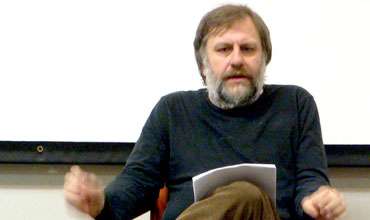
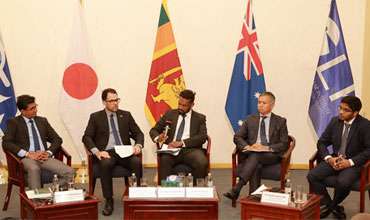
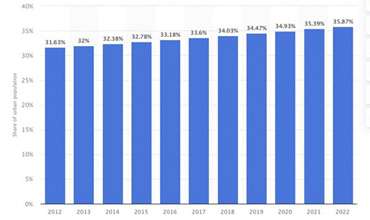
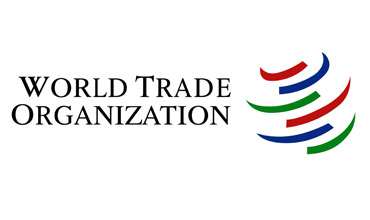
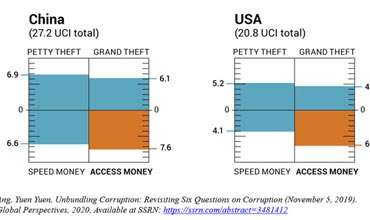
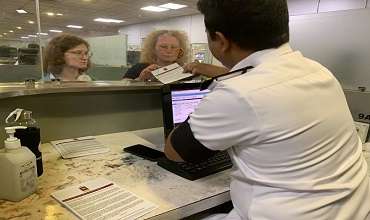
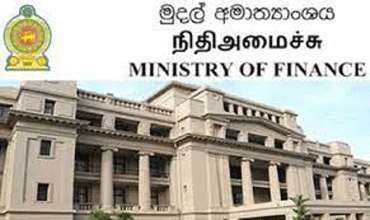
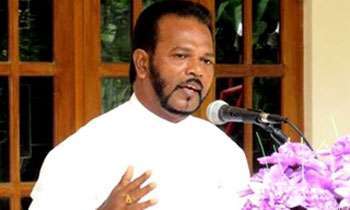

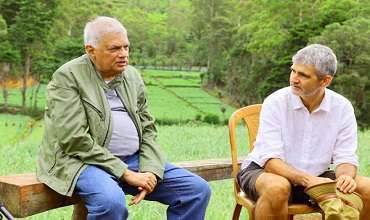
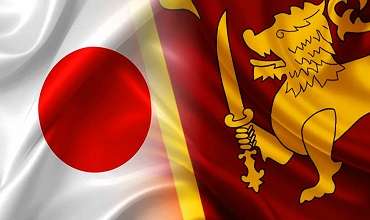

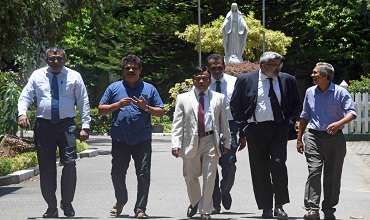
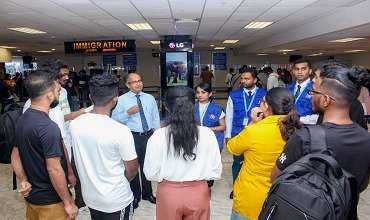
Leave Comments